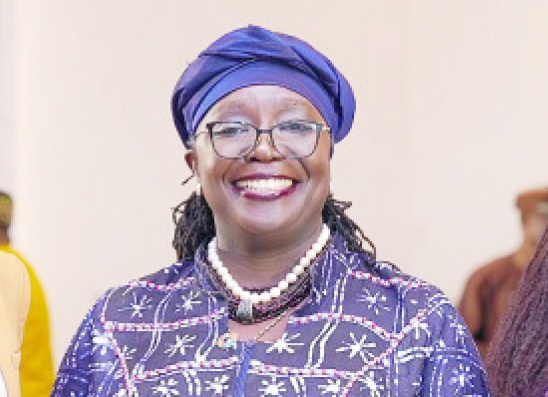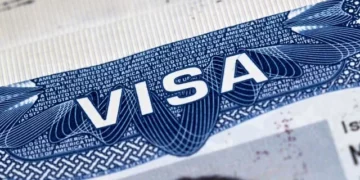After some years of the AfCFTA coming into force, what have been the benefits amid the economic enormous challenges facing the continent?
First of all, let me appreciate the leadership of the government of the Federal Republic of Nigeria for the partnership that they have together with the United Nations Development Programme (UNDP). And today we are here with the Federal Ministry of Trade Industry and Investment to discuss another partnership on how Small and Medium Scale Enterprises will leverage the opportunities presented by the AfCFTA .
This agreement has been signed by 55 countries, ratified by 47 countries and it is the largest free trade area in the world with about 1.4 billion people. So, this agreement is providing opportunities for us to trade among ourselves as Africans because Africa only trade about 16.6%. The agreement is about job creation, revenue creation, the prosperity of the African continent and for the very first time for African countries to trade among themselves.
In Africa, SMEs are about 80% of the businesses therefore by empowering the SMEs; we are actually creating opportunities for them to connect to other parts of the region, whether you are talking about Senegal, Ghana, Uganda, South Africa, Egypt and anywhere in Africa.
Regarding the challenges, we can collectively address that with government and the private sector. We have the National Action Committee of AfCFTA here in Nigeria, we have SMEDAN, we have women association, and we have youth association and banks in Nigeria all wanting to create a platform to support SMEs. All those revolve around trade facilitation and access to financing to enable them grow their businesses, brand their businesses, package their businesses and making sure that we have the criteria that is good enough and supportive of small and medium enterprises.
Another thing that is also important is market intelligence. We want to identify the markets and what are they offering for Nigerian and African men and women? Therefore, there is the need for us to delve deeper into where these opportunities are. And for us as UNDP, we did launch together with the AfCFTA Secretariat what we are call future support on about ten regional value chains that provide us the opportunities to engage, with whether the pharmaceutical area, around critical minerals, links to energy transition, creative industry and many more. This market intelligence is something that is available to us but we need to be more focused in terms of the different markets in African countries and how to approach them.
I think it is in our capacity and I am very glad that Nigeria is providing the leadership particularly through the guided trade initiative which is more around early mover countries. It demonstrates that this agreement can work and should work with the leadership of the Nigerian government.
There is the issue of standardization and one area is around the suggestion for a recommendation of a singular policy that will guide standards on customs procedures for goods among African countries. What is your take?
The beauty about the AfCFTA is that it is big enough and it is strategic enough to include all stakeholders. We have to bring not only the SMEs, we have to bring together our export promotion boards, our customs, the regulatory authorities and we have to domesticate these things. So, I think countries that have ratified the agreement including Nigeria will need to domesticate that because domesticating means we have to look at our policies, our regulations, our laws and make sure that it is in line with the instrument that has been signed.
Once we begin to look at it from that point of view, then that standardization begin to happen because whatever Nigeria is doing must be consistent with whatever Uganda is doing, consistent with what Egypt is doing, consistent with what Ghana is doing. This is where the standardization comes in to make sure that we have a seamless approach to the implementation of the agreement.
Africa’s contribution to global trade is about 2%. Your focus is on Nigerian SMEs but in the last couple of years, the FDI into Nigeria has dwindled, the capital inflow into Nigeria has also dwindled. So, how do you address low trade amid the dwindling economic fortunes in Nigeria and other African countries?
That is what the AfCFTA has come to address. If we are talking about development financing and the FDI is dwindling, we have to ask ourselves why it is dwindling. It is dwindling because of the impact of Covid-19, it is dwindling because of the crises we have in the world, it is dwindling because of the geopolitics in the world, where financing is shifting from many countries in the world including from many countries in Africa.
So, what the AfCFTA set to achieve is to provide for trade opportunities among ourselves. When we begin to look at trade, don’t look at people bringing money, look at the women selling Nigerian fabric called Adire, the one producing leather in Kano and the manufacturer in Aba. If we can support them through domestic financing that will boost their businesses.
I think what we have today in the conversation is that there are different instruments that the government has made available either through the Ministry of Industry Trade and Investment or through the SMEDAN or through the Ministry of Youth to support young people. We must look into these opportunities and then work together to aggregate these SMEs and understand their needs.
We have to support them in branding, support them in aggregating their products and help them with logistics. For instance shipment is a big cost to many of these young businesses, so we have to look at how to support them in that aspect to reduce cost and do their businesses.











